All freedom will be lost when the war is won
War in Ukraine (or anywhere else) will usher in the digital Dark Ages
Recently there has been much hand-wringing over the possibility of a major military escalation in Ukraine. Many respected thinkers and analysts are warning that the unresolved conflict in Donbass could spark full-scale war—perhaps even a direct confrontation between Ukraine and the Russian Federation. Even the truly unthinkable—American and Russian soldiers blowing each other up—now seems vaguely possible. Crazier things have happened.
Your humble Moscow correspondent is not a military analyst. We visited Donetsk twice and saw many terrible things but we do not pretend to have a deep understanding of what is happening there right now.
But here’s what we can say with near 100% certainty: If there is a Big War—in Ukraine or anywhere else—it means worldwide digital “health” passports will remain with us for a very, very long time. Maybe until the Sun explodes, 5-7 billion years from now.
After all, it was only 100 years ago when a “temporary” wartime identification system—designed to restrict freedom of movement, in a flagrant violation of international norms—took root around the world… and then never went away. We’re referring to your fancy “international passport,” of course—a WW1 travel pass originally intended to help governments keep a close eye on spies, refugees and other undesirables.
The League of Nations was supposed to abolish this devilish document. But then the Spanish Flu arrived on the scene and The League decided this public safety card could also be used to protect public health. (They later admitted this was not true, but too late, suckers!)
Today people pay huge sums of money for these Suspicious Person cards—they are even considered “status symbols.” Probably in 30 years gene-edited humanoids are going to be bragging on TikTok about how their implantable Sberbank microchip health ID allows them to drive their steam-powered Tesla to Mexico without a visa.
Let’s travel back in time, together, and remind ourselves how we arrived at such a sad state of affairs.
‘Before the war nobody asked you for a passport’
The modern-day passport has become such an accepted and natural part of civilized life that few even bother to ask how or why it came into existence. Did cavemen inherit this tagging system from the dinosaurs?
Throughout history travel documents have fallen in and out of fashion—but the international passport that we all know and love is practically brand-new; not that much older than the first Harry Potter book in the grand scheme of things.
The irreplaceable Stefan Zweig—who eventually killed himself because of how upset he was about passports and so many other terrible developments during his lifetime—provided the best firsthand account of the introduction of this travel document and what it represented to those who once knew a better world:
Nothing makes us more sensible of the immense relapse into which the world fell after the First World War than the restrictions on man’s freedom of movement and the diminution of his civil rights.
Before 1914 the earth had belonged to all. People went where they wished and stayed as long as they pleased.
There were no permits, no visas, and it always gives me pleasure to astonish the young by telling them that before 1914 I traveled from Europe to India and to America without passport and without ever having seen one. One embarked and alighted without questioning or being questioned, one did not have to fill out a single one of the many papers which are required today. […]
The world was on the defensive against strangers, everywhere they got short shrift. The humiliations which once had been devised with criminals alone in mind now were imposed upon the traveler, before and during every journey. […]
If I reckon up the many forms I have filled out during these years, declarations on every trip, tax declarations, foreign exchange certificates, border passes, entrance permits, departure permits, registrations on coming and on going; the many hours I have spent in ante-rooms of consulates and officials, the many inspectors, friendly and unfriendly, bored and overworked, before whom I have sat, the many examinations and interrogations at frontiers I have been through, then I feel keenly how much human dignity has been lost in this century which, in our youth, we had credulously dreamed of as one of freedom, as of the federation of the world.
The loss in creative work, in thought, as a result of those spirit-crushing procedures is incalculable. Have not many of us spent more time studying official rules and regulations than works of the intellect!
The first excursion in a foreign country was no longer to a museum or to a world renowned view, but to a consulate, to a police office, to get a “permit.”
Indeed, it’s fun to think (and quietly cry) about how the First World War—which allegedly destroyed various autocratic regimes and replaced them with freedom-loving liberal democracies—actually heralded the end of one of the most basic and fundamental human rights: the right to go somewhere without needing special permission or getting your nether-regions massaged by a diabetic TSA agent.
This phenomenon was nicely summarized by B. Traven in his very good novel, The Death Ship (1924):
It seems to me the sailor’s card, and not the sun, is the center of the universe. I am positive the great war was fought, not for democracy or justice, but for no other reason than that a cop, or an immigration officer, may have the legal right to ask you, and be well paid for asking you, to show him your sailor’s card, or what have you. Before the war nobody asked you for a passport.
And were the people happy? Wars for liberty and independence are to be suspected most of all, ever since the Prussians fought their war for liberty against Napoleon. All peoples lost their freedom when that war was won, because all liberty went to that war and has been there ever since.
Yikes.
The League of Failures
The League of Nations was supposed to abolish the international passport system sometime in the early-to-mid 1920s. It was literally “on the agenda.”
Then, in 1926, the governments of the world had a big announcement: “Passports are here to stay, even though we known they’re unpopular and discriminatory. Whatever, deal with it.”
The only non-asshole at this passport conference was the delegate from Hungary, who kept pointing out that the passport system was dehumanizing and basically useless.
Even the Italians—who played a very greasy game where they opposed passports in principle but still said they wanted them—admitted that using a piece of paper to mark someone as “healthy” made zero sense because you are always capable of getting sick.
In an article published in 1931, Italian diplomat Egidio Reale explained why everyone hated the League of Failures:
Reasonable persons hoped that with the return of peace would come a return to the former freedom from travel restrictions. But despite solemn declarations in the peace treaties, requests from international organizations and promises made by several governments, the compulsory passport system was not abolished, or even modified. It was to some extent made even stricter.
This guy had no idea how good he had it. He was allowed to travel without proof of a fourth booster shot.
Incurably optimistic
As we have proven beyond a reasonable doubt, all freedom will be lost when the next war is won. It doesn’t even matter “who” wins this future war—that’s the best part!
Your great-grandpa was hounded by irredeemable imbeciles—now it’s your turn.
The next war—which really could be anything, like a sneaky cyber-strike or a coordinated stock market crash or an electronic pulse-emitting satellite that irradiates all the McDonald’s cheeseburgers, killing zillions—will cause ordinary people to root for each other’s immediate demise. Anyone who survives will be treated like factory farm poultry.
It’s not all bad. It could even be fun, in a weird way. It just depends on your perspective.
For example, here’s British journalist Philip Gibbs marveling at how awful everything was in 1920:
For good or ill, a revolution will happen. It has happened in the sense that already there is no resemblance between this Europe after-the-war and that Europe-before-the-war, in the mental attitude of the masses toward the problems of life.
In every country there are individuals, men and women, who are going about as though what had happened had made no difference, and as though, after a period of restlessness, the people will ‘settle down’ to the old style of things. They are merely sleep-walkers.
But then here’s Henry Miller—who was always seeing the silver lining in things!—writing about post-WW1 Paris:
Walking along the Champs-Elysées I keep thinking of my really superb health. When I say ‘health’ I mean optimism, to be truthful. Incurably optimistic! Still have one foot in the nineteenth century. I’m a bit retarded, like most Americans.
Humanity hangs by a thread, friends.



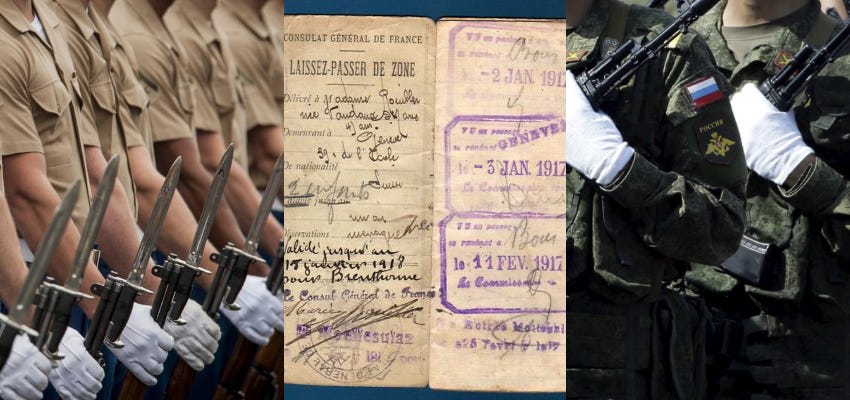
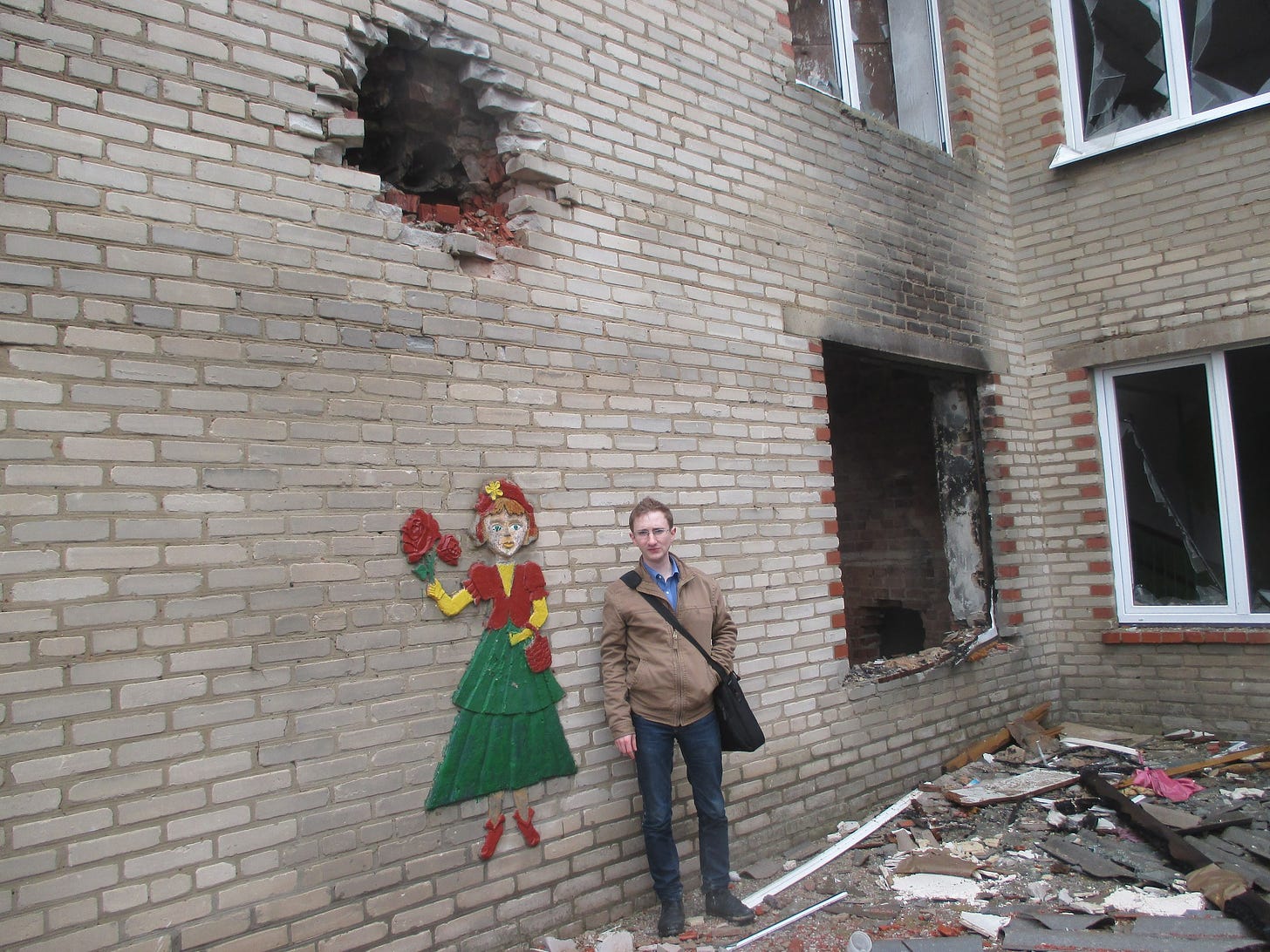
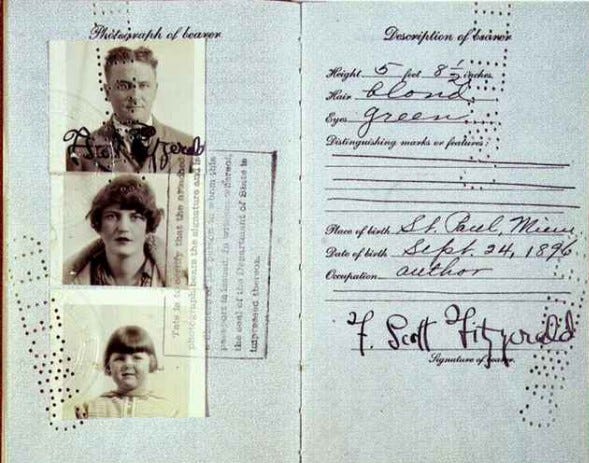
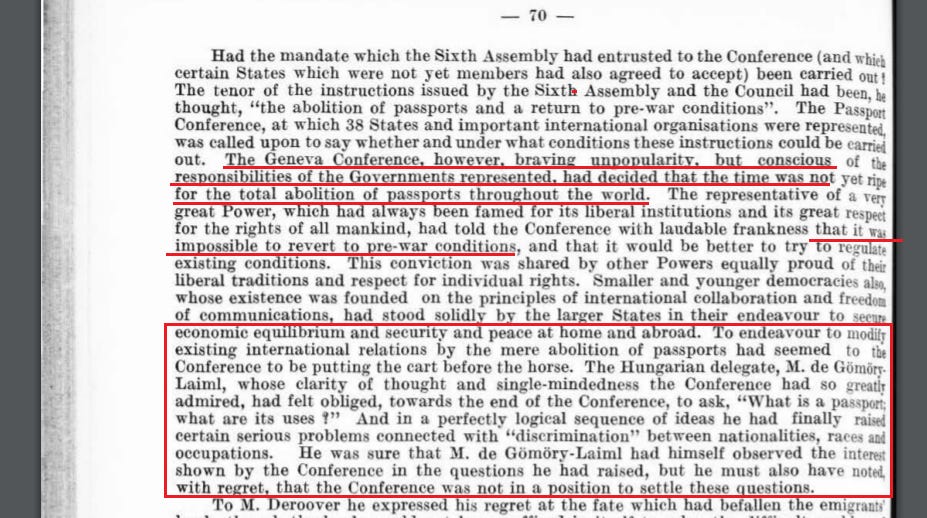

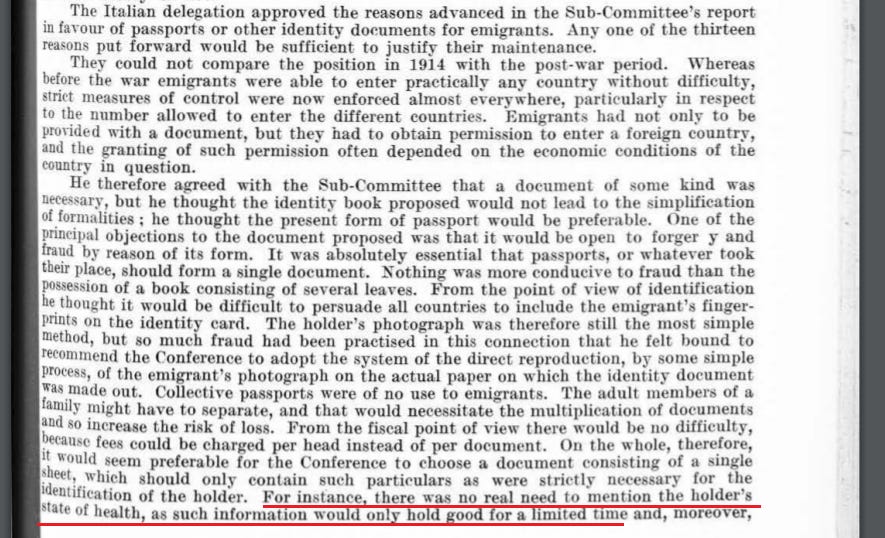
Excellent 👍 piece. What we must accept sooner than later is that we are already at war. It is a silent war. causalities are brutal in a silent war. Victims never see it coming and often walk right into the line of fire. This silent global war has been declared on the people, their bodily autonomy and essential liberties and any revolution today must be not just in the name of winning them back but securing them again for generations. Where do we start? Throw out your dumb phones kids. You don't need apps. You phone is their shackles. The games are up. Time to choose, liberty or soma.
I see the order of things differently. Western governments need firstly to impose the vaxx-pass so that when Martial Law arrives due to war against Russia/China/Iran the native populations cannot rebel.
Btw, looks that Brazil is the best place to be. Nicw weather, target of no nuke or EMP, and today we were gifted with a hacker attack on the health ministry that deleted the entire history of covid vaccination in the country. so according to official data the number of vaccinated brazilians is now zero, just as half of the country is already requiring the mark of the beast to enter bars, gyms, etc
https://saude.estadao.com.br/noticias/geral,site-do-ministerio-da-saude-e-invadido-e-dados-ficam-indisponiveis,70003922249